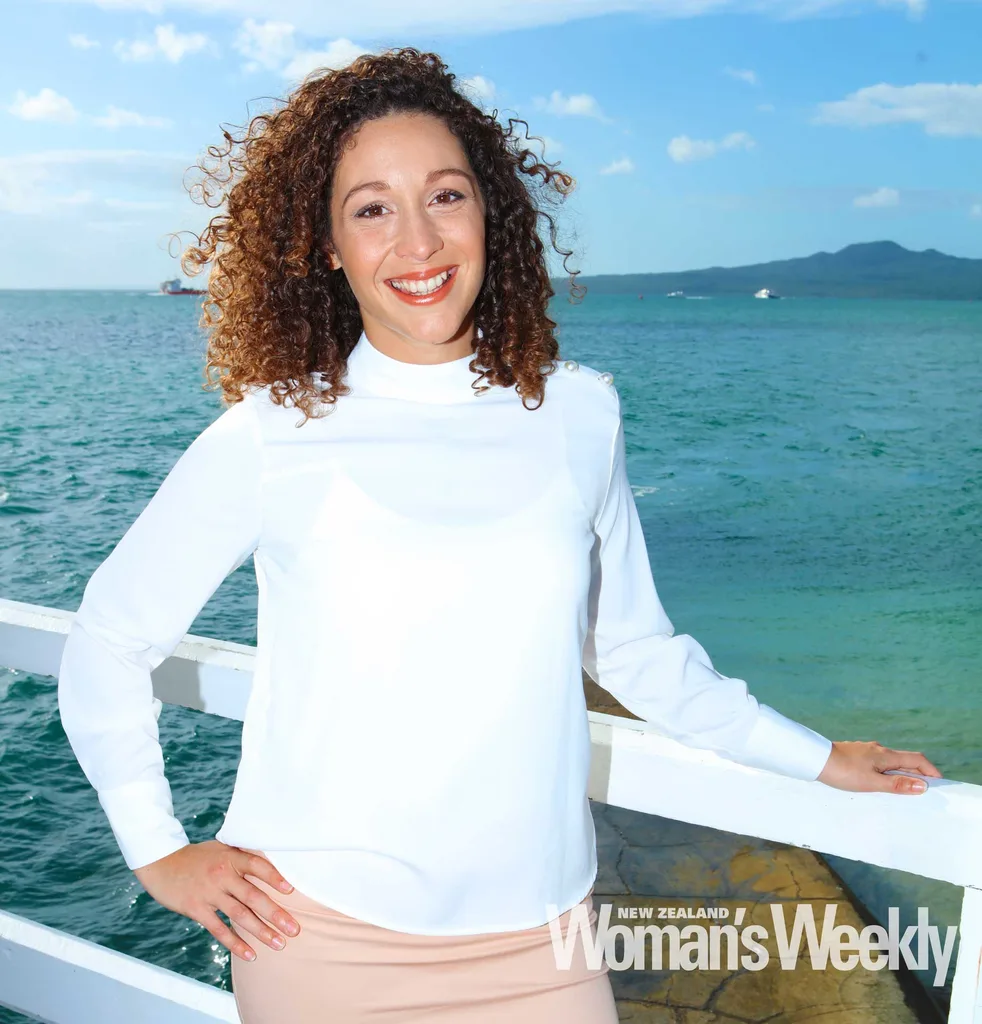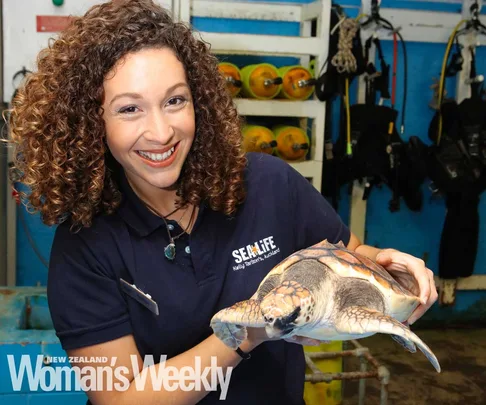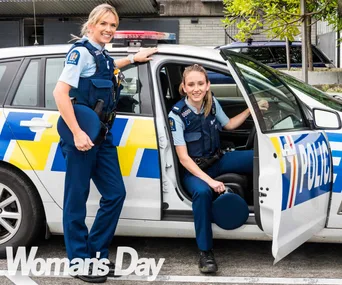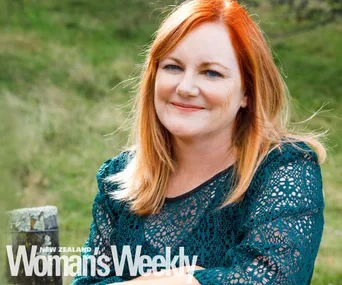“Most of my career so far I’ve been back and forth from New Zealand and Australia. I completed my university degree in Auckland, where I did a Bachelor of Science majoring in marine science, and I worked on the Auckland whale and dolphin explorer boat. I got to see the Hauraki Gulf and all the animals here, and I just fell in love with boats and the ocean!
Afterwards, I took off to Australia, staying in Port Douglas, and got a job out on the Great Barrier Reef as a marine biologist. I did that for about four and a half years before coming back to New Zealand, and it just happened perfectly that Kelly Tarlton’s was in need of an aquarist and I was in need of something cool to do!
Much of my work involves taking care of the tanks and the animals – and a lot of the dirty work too! But without a doubt, my favourite part is just getting to know the animals, especially those that we help rehabilitate here at the Turtle Rehabilitation Centre, which is about 20 years old.
You really get to form a connection with all of them. For us, when turtles land on the beach, that’s not a good sign. It often means they’ve given up on life and it will be a long journey getting them back to health.
We see things like turtles suffering from cold, shock, starvation, infections and even injuries like lacerations. Sadly, a lot of those injuries can come from plastic.
There’s been a study done that says one in every three turtles that wash up on New Zealand beaches have plastic in them. That’s not a good figure.
When you look at plastic bags, 1.6 billion get used by Kiwis with only a 12-minute lifespan. After 12 minutes and just one use, these bags end up in the habitats of marine animals and it can destroy their lives.
More than 100 million marine animals are affected by plastic pollution. The simple act of banning plastic bags is tremendously helpful in saving the lives of these species and it’s so good to see Countdown leading the way on committing to reduce plastic and supporting our turtle rehabilitation programme.

The process of rehabilitating a turtle involves many people. When a turtle gets stranded, the Department of Conservation staff are the first people called and they will pick up the turtle and fly it to Auckland. Then they contact us to let us know the turtle is on its way.
We work with the Auckland Zoo vets, who examine the turtles and let us know the best way to care for them. They’ll get X-rays and blood tests done just like humans. We’ll take the turtles and put them into our quarantine area, where we make sure they’re taking the right medicine, and we get them eating well and gaining weight.
And then once they are doing better, we put them into our special tank − Turtle Bay!
Our busiest months are during the winter, where storms will often wash in sick turtles. Last year, there must have been 14 turtles in three months wash up on New Zealand coastlines.
I absolutely love feeding them. It can be a little bit of a love-hate relationship depending on how the turtle approaches you. But watching them progress is such a good feeling.
The bittersweet part of this job, but also one of the best bits, is releasing them. You don’t want to say goodbye because you get emotionally connected to the animal, but it’s really good to know that an animal you’ve taken care of can go back home.
It can take months to years to rehabilitate a turtle – every single one is different.
This year, we released our three green turtles, including Oscar and Kiwa, near Poor Knight’s Island, which was so fantastic. They had such great personalities!
As well as working with turtles, I help take care of other species including the stingrays – who are very attention-seeking and smothering − and sharks, who have real personalities. We do diver handfeeds in one of the major tanks during the week, and on Tuesdays and Thursdays, we do the shark tank.”
How Countdown is supporting Kelly Tarlton’s turtle rehabilitation programme
Countdown is proud to be supporting Kelly Tarlton’s rehabilitation progamme. Last year it was the first supermarket in NZ to announce a move away from single-use plastic carrier bags by the end of 2018 – and this will remove around 350 million plastic bags from circulation each year.
The initiative kicked off on 21 May, with 10 pilot Countdown stores converting to reusable bags. They’ll be leading the charge for Countdown’s remaining 172 stores nationwide to follow suit before the end of this year.
Moving away from 350 million plastic bags takes a fair bit of work behind the scenes and the learning that these first 10 stores undergo will help ensure a smooth transition for all of Countdown’s customers and teams when they make the change.
The great news is Countdown customers have already reduced their use of plastic bags by just over 16 per cent since Countdown announced their commitment last year. Their popular black Countdown reusable bag is now also a Bag for Good™. It costs only $1, and when it wears out, bring it back in and they’ll replace it for free, no matter when you bought it from them. They’re committed to make it as easy and affordable as possible for customers to move towards reusable bags.
“We know from our research that more than 80 per cent of New Zealanders think it’s time to make the move away from plastic bags,” says Kiri Hannifin, Countdown’s General Manager Corporate Affairs.
“The New Zealand environment is precious and we’re keen to support our customers to make change in an easy and affordable way. Our focus is firmly set on encouraging customers away from single-use plastic where something is used once and then discarded. The much better outcome is to use something over and over again, then recycle it to be used again,” she says.
Removing single-use plastic bags is just part of the supermarket’s overall aim to reduce plastic. It also has 20 corporate responsibility and sustainability commitments underway and is looking at ways to reduce plastic right across the business, including in produce and delis.
Find out what you can do to help – start using reusable bags now.



